#many more im sure
Explore tagged Tumblr posts
Text
I love you characters who were doomed for greatness
#destined for failure and destruction#no matter what path you take#tma#the magnus archives#dbh#detroit become human#rk800#jon sims#agnes montague#orv#kim dokja#actually not sure for fhe orv tag bc i refuse to finish the novel#many more im sure
95 notes
·
View notes
Text
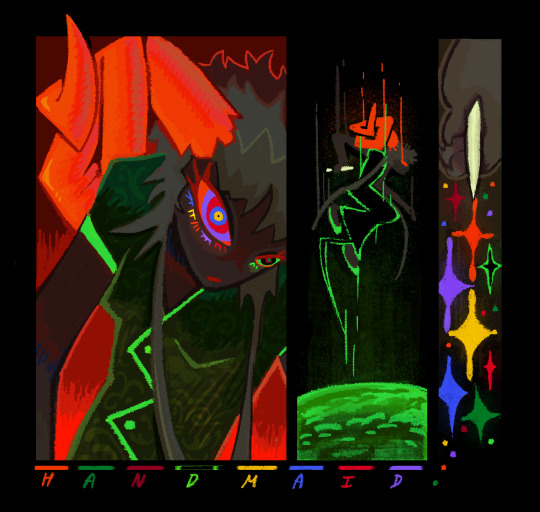
heiress eternal
#so many thoughts about her#the handmaid#the handmaid homestuck#homestuck ancestors#damara megido#homestuck#egg art#according to hussies book aradia was in contact with the handmaid to receive game instructions#which is interesting considering megidos can speak to the dead and the handmaid is one of the few ancestors alive#so either handmaid channeled a dead aradia or future aradia channeled a dead handmaid#handmaid could of also just manipulated the timeline to make sure aradia was the catalyst for the game being played#or something less more or equally complicated#and without this we just have to assume its maid powers allowing aradia to have flawless instruction of what to do or shes just a#level 3000 gigabrain girl genius at 13 years old#and instead of putting that interaction in the story we got. the dancestor flashes#so im a little miffed about it really
4K notes
·
View notes
Text





the restrained sniffer
#a doodley#anthro#furry#this 100% works more with their human forms but i am not immune to funny kitty#though i guess ''to wear'' doubles as like wearing.... it as a blanket...#sorry its so awkwardly broken up...tumblr allows so many pics so i get to make sure all the nice details are front and center#anyway im an overexplainer and in the past ive gotten so nervous about Action in my little comics#like. how will people know a character did [thing] if i dont show them doing it!!!!!#so this was also a mini exercise in omitting action...like i didnt waste panels drawing talon pulling the shirt on#or al putting on his horn toppers#finally; i had another related doodle idea i never drew out but might now if i remember to....#but wrt smunker's pillowcase and a resulting incident#point being Talon is a smell enjoyer...
2K notes
·
View notes
Text
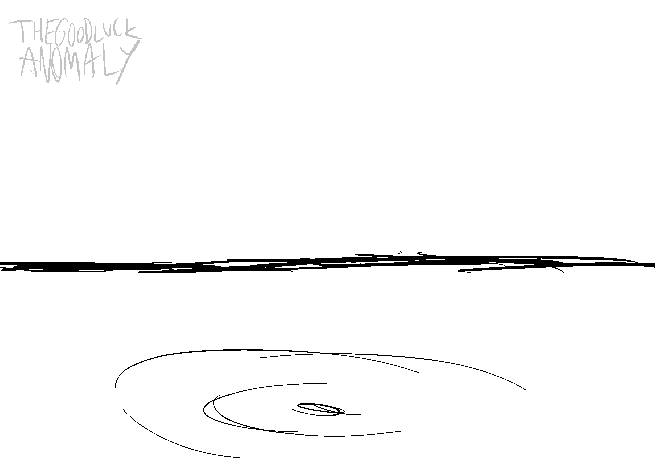
posted this forever ago as part of a bigger compilation BUT i think it deserves to stand on its own. i was gonna add more color BUT that didnt happen; thus it doesnt translate aswell that hes freezing the water around him. BUT now you aware and you can see it. you can see it
#jrwi fanart#jrwi show#jrwi riptide#gillion tidestrider#OLD AS FFFUUUUCCKK BUT THIS WAS ONE O THE FIRST ANIMATIONS I MADE BACK WHEN I WAS REAAAALLY GETTIN BACK INTO THE GROOVE#OHHH THE HHAAAIR THE POSINGE THE WEIGHT THE PERSPECTIVE AND THE FLOW AND YEEEESSS IM STILL SO PROUD#SURE THERES MISTAKES. SO MANY MISTAKES. BUT IT STILL MOVES AND ITS STILL SO COOL. YIPPEEE!!#i think im gonna gradually post the other animations i made forever ago individually#they were all clumped together! and i simply do not like some of them as much as others. those are my special children whom i love more#the others shall be fed to wolves.
3K notes
·
View notes
Text
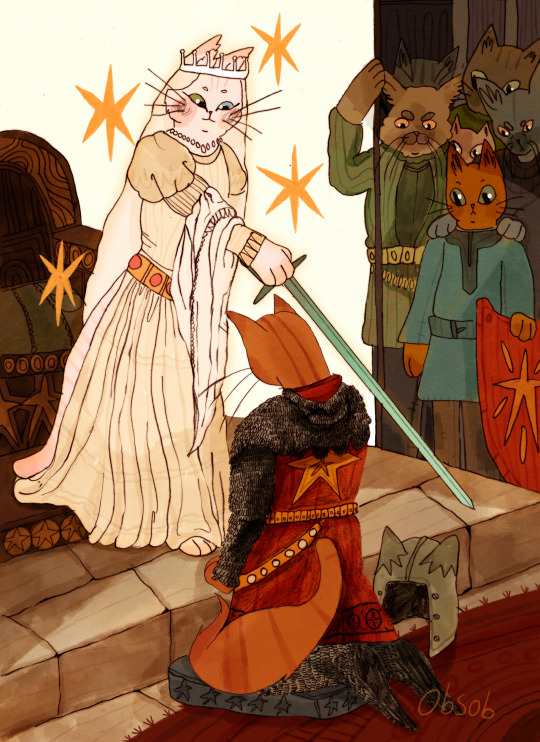
the accolade ( the...the cat-olade...)
#mine#original#i cannot even begin to explain the anguish. the torment. this drawing has brought me#and i STILL dont like it. i simply cant work on it any longer i cant i cant. i must be rid of it#eating drywall as we speak#you want to know how many weeks ive worked on this. THREE. ALMOST.#you want to know how long my other cat drawings take me ?? 3 days absolute MAX#anyway. begon foul creature etc#i havent left extremely long tags for a long while hello everyone good lord there are many of you#we are going stratford this weekend very exciting#its going to be a little chilly and i want to take my new coat with me but issue its not chilly right now so i cant wear it onto the train#i do not think. i can. stuff it into my suitcase i dont think that will happen#i am sure i will figure it out#also. no longer vegan . eggs have won me over. egg egg egg.#im having to restrain myself SO hard from buying more wool i want a shawl i want a shawl#i want more cute DRESSES why are nice comfy dresses 10000£#i look on vinted and its like dresses for popping your pussy in like not. the vibe im going for thank u#anyway. im going to eat crackers now
4K notes
·
View notes
Text
the first time you give in and let shanks into your bed—after months and months of very persistent dashing grins and cloying sweet-talk—you don’t realize until he has you pressed against your bedroom door, with his singular hand tucked beneath your skirts to grasp the back of your knee and hook your leg around him, that the vest you’ve chosen today is held together by a row of small buttons at the front.
it’s an issue it seems he’s only just realized too, as he pulls away from your lips and stares down at your bust.
“buttons,” he says with a pout, thumb tapping pensively against the side of your knee. “is this a test?”
“an accident,” you laugh. “i’ll help—“
“no.” shanks nips at your finger playfully before you can touch your neckline. “not proper to make a lady undress herself.”
it shouldn’t be a surprise, you suppose, but he’s more skilled than you anticipate. with teeth and tongue he manages to undo three before the steady unveiling of your cleavage distracts him. letting go of your leg, he reaches up to work at the fourth even as his tongue runs hot over the newly exposed skin of your chest.
then you feel him pause. he blinks; his eyes are dark and stormy, so deep red they might as well be black. though you often find it difficult to parse out what he’s thinking, it hardly takes a genius to gauge the way that big hand catches hold of the side of your vest, teeth grazing the other; preparing to forego any more delay and simply tear the damn thing apart.
“pop them,” you sigh out, somehow unwilling to speak more than a murmur, “rip it off. i won’t stop you. but—“
you pause just as shanks does the same, eyes darting up to meet yours over the heaving swell of your chest and fingers freezing where he’s gripped the fabric of your bodice.
“you won’t do much more than touching tonight,” you finish.
those eyes sharpen. a thrill goes through you, as his fingers flex for half a moment—and then he’s surging up to kiss you again, hard and heavy and biting, drawing a heady giggle from your tongue. his arm slips around your thighs, tightening to lift you from the solid wood you’ve been pressed against before he turns to take a scant few strides and deposit you onto your bed, not once parting from your lips.
only when you’ve settled does he pull back, just slightly, pressing his forehead to yours as he moves his arm to brace himself on his elbow and then giving a surprisingly chaste peck to the tip of your nose as he begins a descent.
he lingers at the edge of your neckline, sucks at your skin, then kisses down your stomach over the fabric that still covers you; his hand is eager but gentle as it slides beneath the hem of your dress again, rough calluses brushing against your foot and ankle and calf until he’s palming your knee and pushing the fabric up over your thighs.
“well.” that look in his eye is more of a glint now, accompanied by a grin and a wink that has you rolling your eyes as shanks disappears from sight. “suppose i’ll find something we can do without taking that damn thing off, eh?”
#one piece x reader#shanks x reader#char.🌧 shanks#mine.🌧#anyway this is me shilling my ‘the way to hook shanks is with a challenge’ agenda#idk cute concept to me. he manages to get it undone eventually but that’s a button or two at a time in between eating u out LMFAOOOOOO#just keeps getting distracted#should start keeping count of how many drabbles i write that end in shanks abt to eat u out bc there r more to come im sure
718 notes
·
View notes
Text
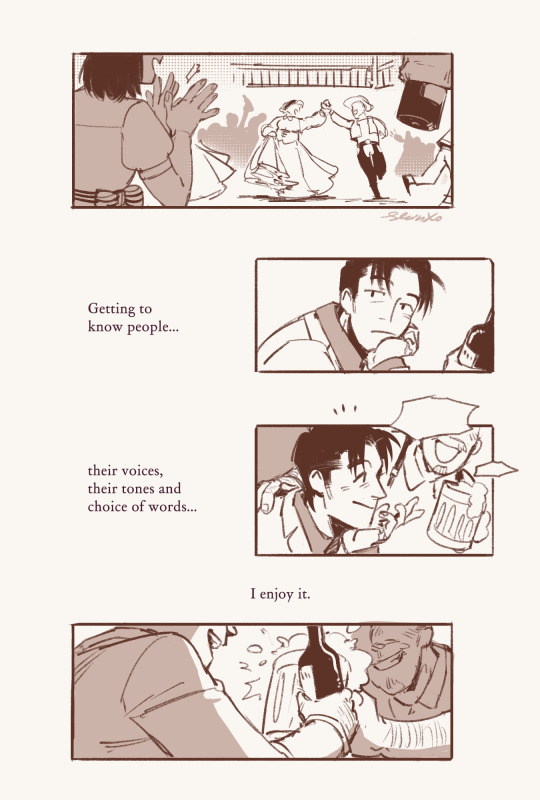


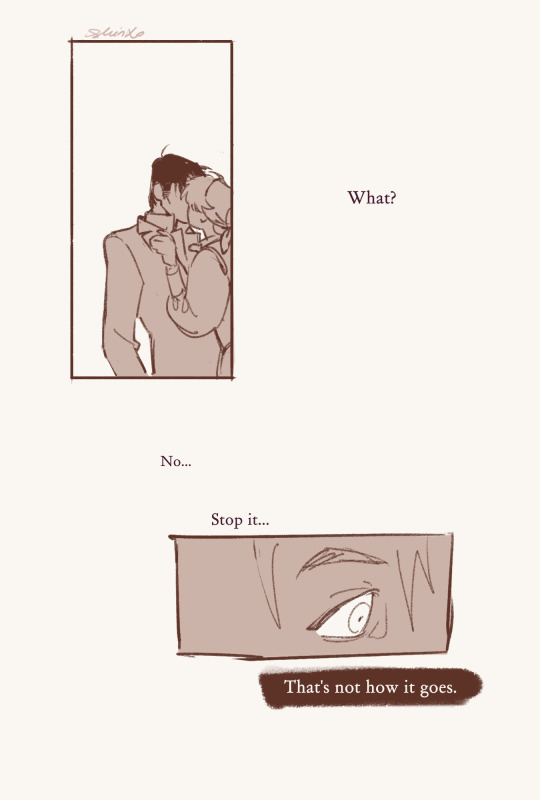




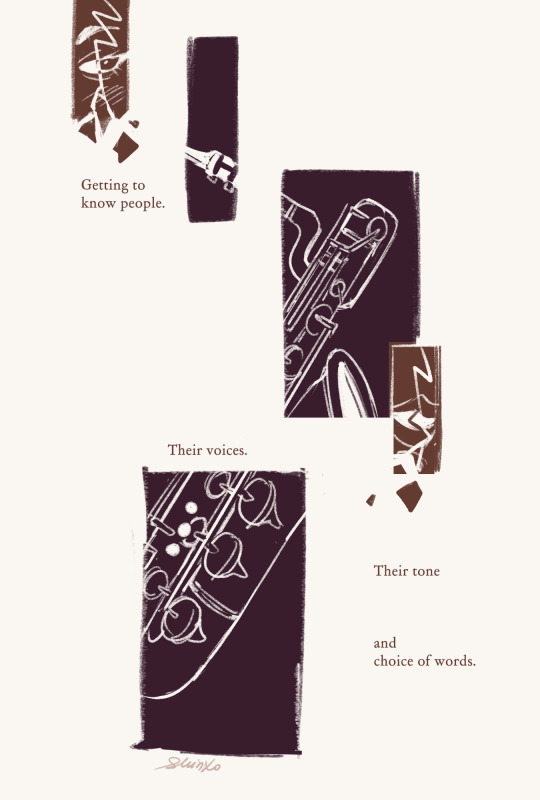

Getting to know people
Based on @acetrigunweek day 3's quote
#trigun#trigun maximum#midvalley the hornfreak#ace trigun week#hi im back with another ace midvalley art🕴#apothisexual more specifically#ive been thinking abt how to illustrate this correctly for so long and finally got it out of my system *jumps and clicks my heels*#i have so many thoughts abt the way he views the people and the world around him#he kills ppl for sure but i dont think he necessarily hates them#its nice to have a friend or two around#but his charm is taken for flirting by others when he's just a social butterfly who cant stick to eavesdropping and ppl watching#sometimes a guy just wants a comforting human bond without having to follow through the unwritten steps of the relationship recipe#you know?#shinxo art#shinxo comic
2K notes
·
View notes
Text
Ideology of Exceptionalism and Gravity Falls; meta and character analysis

I had a whole ago read a post by @icanlife that had a quote by Alex Hirsch on Ford's greatest flaw, and wanted to explore what the flaw is, which is the ideology of exceptionalism; in the exploration, I’ll touch on what it is and how it is used in abusive relationships and cults, as well as how it drives multiple Gravity Falls characters and consequently how it impacts relationships between these characters, and how the show ultimately refutes exceptionalism.
Quick note here; I am not in any way, shape or form a psychologist nor have any formal training in psychology; this is written from my own experiences with this ideology and my own forays into psychology and trauma-informed learning. It is also written with a loose understanding that is likely not broad enough to cover all references to cults, extremist groups and abusive relationships.
The Ideology of Exceptionalism
First of all, we have to get through a drier bit, which is… what is the ideology of exceptionalism and how does it arise? Might be fairly obvious, but it is the belief that you are, or belong to, a group of exceptional people, thus more important and worth more than anyone else; ie, those who don't qualify as 'exceptional'. It is often a subconsciously learned ideology. Now, what qualifies one as exceptional can be extremely varied; generally it revolves around something that provides some form of privilege. Thus, it might be, as the main exceptionalist idea in Gravity Falls, 'intelligence', or power, or it can be such things as attractiveness, quantity of money one has, species, nationality, or skin colour and ancestral heritage. The ideology of exceptionalism, being by nature hierarchical, devalues, and at its worst, openly and violently dehumanizes those who do not qualify as exceptional.
For why exceptionalism occurs is an extremely broad topic, but I've personally found that, for exceptionalism revolving around intelligence, it's a result of a poor sense of self-worth, and having one's self-worth tied to what makes one exceptional. Poor self-worth itself (again, broadly) is a result of childhood trauma from a lack of positive affirmation and unfulfillment of the emotional needs of the child. Meanwhile, self-worth becoming tied to the quality of exceptionalism generally is a result of when positive affirmation was pretty much solely provided around their 'exceptionalism', especially when provided derogatory commentary, or a blatant example of how they would be treated if they aren't 'exceptional'. As a result of the general lack of affirmation, self-worth then becomes often solely reliant on the qualities of exceptionalism, as that is the only way for the child (and later, adult) to get affirmation of their worth, as well as out of fear of being ‘not worth anything’ like the examples of ‘non-exceptional’ people they have been given.
This is especially likely to occur when the child is a social outcast; the adoption of the hierarchical ideology of exceptionalism, and the devaluation/dehumanization of others often occurs subconsciously as an avoidance/minimization tactic from pain. This is to say, the child, and later the adult (if healthy self-worth is not established) goes 'it doesn't matter what the non-exceptional people say or if they accept me since I matter more than them because of my exceptionality'. It can even be taken further, that being shunned is part of one's exceptionalism, and becomes part of the qualifier of being exceptional. For instance, 'they just can't understand because they aren't exceptional and that's just a part of being exceptional'. This idea also neatly tailors into the part of the concept of being better then others means you are separate from others; this can be taken that someone who is special, needs to be alone to be truly special.
Obviously, exceptionalism is not a healthy coping mechanism for poor self-worth, as often such people constantly feel the need to prove and show off their exceptionalism to gain that affirmation and avoid rejection, which is stressful. As well, it often negatively impacts their relationships with other people as a result of the arrogance of believing that they are better than most others, or even deliberate sabotage due to their arrogance. This occurs as they flatten the complexity of human experience to black-and-white hierarchical categories of exceptional/not-exceptional through constant judgement of those they meet, and often refuse to engage with people who don't belong to their 'exceptionality', or even people they simply don't like, even if they technically qualify. Generally, those that they do like or have close relationships with, often due to being similar, are automatically labelled as 'exceptional'. Those judged as ‘exceptional’ also become privy to the open judgements of ‘non-exceptional’ others, out of a subconscious belief by the exceptionalist that the other believes similarly; something that may strain their relationship if the other doesn’t ascribe to exceptionalism. This all culminates in the exceptionalist being blind or even adverse to the diversity of experiences, which makes it difficult to create relationships and community outside of echo chambers of their own beliefs (if they can even find this), and subsequently, these people are often isolated and have very few to no close relationships with people.
However, all humans require connections with other people, relationships where one can rely on others emotionally and physically if needed and feel accepted; they also require to feel like they are worth something, that their life has meaning. Lacking meaningful connections and having a crippled sense of self-worth, a deep yearning hole is left in these people. Exceptionalism, especially as it is a narrative constantly pushed by Western society as it validates hierarchies, is then employed as a (often subconscious) trauma response to assuage this yearning hole, with arrogance and denial. And depending on the circumstances, it can be a very strong and definitive trauma response for people.
This isolation and lack of self-worth is catnip to abusive relationships, including cults and extremist groups. These types of relationships often heavily rely on isolating their victims or pulling them into echo chambers of solely the abuser’s rhetoric, to redefine what is healthy through gaslighting; as the exceptionalists are already isolated, this makes them extremely susceptible. They also often provide these people affirmation, and in these cases especially about their exceptionalism, thus confirming their self-worth, their 'specialness', while also providing them the connection they have been lacking, either through the cult community or through the abuser’s own presence. These emotional needs, which haven’t been met in a long time, if ever, begin to be fulfilled; something that abusive relationships and cults hinge on, rather than any form of logic.
Ideology of Exceptionalism and Gravity Falls
The main characters within Gravity Falls which are heavily ascribed to exceptionalism would be both Ford and Bill; this characterization deeply impacts the story and their relationships with others (technically the Northwest are another case regarding wealth, but less directly impact the storyline and thus tangential; Gideon also is an example, but as a mirror of Bill). With each of these characters I’ll go into detail within their sections on the way they began to ascribe to exceptionalism, and how it plays out later in their relationships; I will first begin with Ford, then move to Bill. Then, to cap it off, I’ll go into the characterization of Stan and the way Gravity Falls refutes exceptionalism.
Ford and Exceptionalism
Firstly, the quote from Alex Hirsch that kicked this whole baby off, as mentioned previously;
“Ford sees Dipper as someone who’s special like himself. That’s Ford’s great flaw, his arrogance is he believes that there’s special people, and everyone else. That human attachments are actually weaknesses. And the song and dance that he’s giving Dipper right now, is the song and dance that he gave McGucket, back when they were younger… ‘You and me are different, we’re better than everyone else. We have a path that no one else can understand, and only us can do this.’ It’s a very seductive idea for Dipper… Dipper is a smart kid, but Ford’s projecting. Ford loves Dipper because he sees someone who’ll tell him ‘yes’ to everything. Who’ll never challenge him, who’ll do a really insane dangerous mission.”
Very blatantly Alex Hirsch calls Ford out on his arrogance in the belief that he is special, in his belief in the 'lone hero' complex, in his belief in exceptionalism. And really, it should be no surprise that Ford does so, considering the way he's depicted as a social outcast as a child (other than Stan), and the way his parents have been clearly shown to be not particularly emotionally supportive (“I’m not impressed”); they don't provide positive affirmation except for his intelligence (mostly due to the possibility of money making through it…), while also actively comparing him to Stan who is derogatorily ‘not-exceptional’, and ‘worth less’. This all sets Ford’s self-worth up to be fragile, and other than Stan who wholeheartedly accepts him, he is isolated and invalidated; plus, the only other validation he receives is around his intelligence. All very classically fitting the profile for exceptionalism.

Image id: Stand and Ford when they were children, both clearly enjoying each other's company.
Ford’s belief in his exceptionalism catalyzes after the shattering of his and Stan’s relationship. Previously the twins are shown to do everything together, having a very close caring relationship; something unlikely if Ford thought he was better than Stan. Also, when Ford is talked to about his opportunities, Ford looks uncomfortable at the way they talk about Stan as inferior, compared to how he himself is being praised; but in the offer he’s simultaneously finally being validated, he’s being told he’s someone worth something, and he’s going to be someone worth something after this. And then the science fair incident occurs, and Ford loses that validation from his parents, from the judges and a future of more validation; after being promised validation and acceptance, it slips through his fingers. And in his anger of being denied that, it becomes easy to begin to slip subconsciously into the rhetoric the others have been feeding him; that he’s exceptional, that Stan isn’t, and he deserved to be recognized for his worth. So he breaks the relationship with the only person who accepted and validated him for who he is. With that loss of previous support, Ford becomes then deeply obsessed with proving his exceptionalism to the world to assuage that fragile self-worth, to become accepted, or even better, revered, confirming that he is someone of worth, someone special, like he was promised.
Ford’s obsession also doubly functions as a way to alleviate his guilt over shattering their relationship; if he’s exceptional as he believes, then he’s within the right to respond the way he did, as he’s worth more than Stan, he's better off alone, and he has a right to be angry over being denied that validation. As well, in much the same way as it is used as a way to alleviate his guilt over the end of their relationship, it is also likely used in a way to minimize the pain of being ostracized (although not directly depicted); afterall, Ford’s keenly aware and insecure about his social ineptitude and his six fingers as things that make him different from other people, case in point with his experience visiting Lazy Susans Diner. Thus it wouldn’t be unsurprising if he uses the idea of being worth more than those who ostracize him to imply it ‘doesn’t matter’ what they think. His ostracization by nature keeps him from generally forming close relationships, with the exception of Fiddleford (who much like him, is socially outcast, and intelligent) during his university days. As a result, he's isolated and acutely lonely, having lost Stan.

Image id: One of the missing Journal 3 pages in TBOB, detailing Ford's botched social interaction in Lazy Susans Diner. In the background is the print of his six-fingered hand.
In his obsession over being acknowledged, Ford, like many others who believe in exceptionalism, identifies strongly with the causes of his ostracization (his intelligence, his six-fingeredness) as part of, or wholly, makes him exceptional. It is obvious through his choice of study; with the grant he has been gifted, he chooses to revolve his work around the weird, the outcast, something that you see Ford gravitate towards being an outcast and deemed 'weird' himself (which in Journal 3 he openly talks about). Something that can be, much like him, framed as 'exceptional'. His work is even recorded in a journal that Ford deliberately chooses to put his six-fingered hand on the cover of. Intertwined with the way it becomes adopted into the idea of exceptionalism, is the keen loneliness from his ostracization and a deep desire to be accepted and a wish to find a community of other weird people.

Image id: Two pages from journal 3, labelled 'Myself', in which Ford is open about being weird, and a social outcast, while also noting his ambitions and that 'Gravity Falls, [is] the place that I fit in.'
Ford and Bill
All of this culminates in Ford becoming an incredibly easy target to manipulate by Bill. He’s desperate to be acknowledged (and thus accepted) by an authority figure so that his belief in exceptionalism is justified and his self-worth confirmed. And he knows he’s intelligent, that he's exceptional because people have told him so, but he just needs to prove it with something that shakes the world. And the grant is finally his second chance after the fair, but he's stuck, and the research is going nowhere, and he's in a town where he doesn't really know anyone and he’s so terribly lonely. And sure, he clings to his exceptionalism but if he can't even prove it then is he really exceptional? Is he even worth anything like he thought he was? And what about what he's left behind, rejected, because of his exceptionalism?
And THEN he finds an incantation and he ignores the warnings because maybe, just maybe, this will be his break to get that acceptance/validation he has been chasing his whole life?
And then it's better than that.
A god, essentially, shows himself to him, an ultimate figure of authority. And he tells him that yes, he is special, he’s worth more than other people, and Bill’s only showing himself to Ford because he is so much more intelligent than anyone else. Ford is suddenly getting his exceptionalism confirmed by a god of ancient knowledge, an immensely intelligent interdimensional being, and he’s also showering him with affirmations, specifically affirmations around what Ford's fragile self-worth is based on. And even better, he's delighted by Ford's six-fingeredness; he's not put off at all, it even becomes his main nickname for Ford, just like it used to be for Stan all those years ago. On top of it all, Ford's own social ineptitude doesn't phase Bill, another thing Ford is self-conscious about; Bill's own social ineptitude as he's not human probably makes Ford feel comfortable, knowing that's not expected from him.
Through Bill, not only does Ford find someone who validates his self-worth through intelligence and even confirms to him that his weirdness is part and parcel of making him special, he also finds someone who he regularly (generally) is in contact with, who enjoys talking to him and even banters with him familiarly. Hell, Bill even deliberately goes out of his way (literally possessing a whole wack ton of rats, then dream karaoke) to celebrate his birthday with him; how long do you think Ford has simply skipped his birthday since he had no one to really celebrate it with? The loneliness, beneath his arrogance and belief in exceptionalism, is being fulfilled; for the first time since Ford was a teenager, he's fully accepted by someone, social awkwardness, six fingers, exceptionalism and all.

Image id: One of the lost pages from Journal 3 in TBOB, the 'one thing led to another' page, with Bill and Ford singing karaoke and drinking together, both clearly enjoying themselves; Bill has an arm slung around Ford's shoulders.
So it's really no surprise at all that Ford fell for this, hook line and sinker. Hell, if I was in Ford's shoes I would fall for it just as hard. And I've seen a few posts floating around talking about how Bill is bad at manipulating, and no, he's not. He was able to pinpoint exactly what Ford wanted and needed, and provided that, was charismatic enough to provide that. Again, manipulation isn't about logic. It really isn't; it's about the emotional core in people, what people lack and what you can give them to slowly reel them in to sing your dance and song. And people will ignore vast swaths of red flags when you're finally being accepted, when you're finally getting your emotional needs met at least in some way or form. It's better than not having them met at all, such as previously. So Ford worshipping Bill is really not a surprise, especially as Bill deliberately stoked it.
All of this is part of why you see Alex Hirsch call Ford's belief in his exceptionalism his greatest flaw; because it allowed him to be very easily manipulated by Bill, and by its nature kept Ford isolated from others, evident by his arrogance in assuming he knows best and refusing to see other people who aren't as 'intelligent/weird' as him as worth getting to know, listen too and even reach out to ask help from, it's him believing he has to be the lone hero as someone whose 'special'. It's something that blinds him to the danger of his work around the weirdness of gravity falls because he’s desperate to seek a place where he and his weirdness belong, and it's something that plays out in each and every relationship he has because it's something he clings to so deeply. It's what cost him his relationship with Stan, who previously accepted him completely, and, as he's disinclined to form new relationships and as Bill actively strokes his paranoia (Trust No One…), ultimately further increases the hold Bill has over him. It's only Fiddleford’s presence as he works with Ford that allows him some form of outside reference and reprieve from solely Bill’s influence, something that Bill resents deeply and is clearly jealous and angry about, even if Fiddleford is helping create the portal. And it's ultimately Fiddleford, once he was aware enough of what was happening, calls Ford out on it, seriously jeopardizing Bill's influence over Ford; but Ford is too invested in the portal, in chasing his own ambition and caught up in Bill’s manipulation to take him seriously, until the incident with the trial, and Ford beginning to hear other voices then Bill.
Ford’s Exceptionalism and Wider Relationships
Now back to how it plays out in all Ford's relationships; we've already gone over it with Bill's influence, because it made him extremely easy to manipulate, and with his disregard of Stan in favor of validation of his exceptionalism. But Ford, as pointed out by Alex Hirsch, also exerts the ideology's seductive rhetoric to both Fiddleford and Dipper (who look up to Ford) in a similar way that Bill does with him (although there is a difference of it being used intentionally and maliciously, compared to subconsciously and earnestly, even if it is problematic). Ford, with his black-and-white view of exceptionalism, sees both Fiddleford and Dipper as people who are like him; 'exceptional', and so he treats them as such, and uses this rhetoric to coerce them into helping him.
For Fiddleford, the lure is how he can change the world, how he can be finally acknowledged if he helps Ford with the portal. And it works well; he willingly chooses to leave his own work and his wife and young son, to work with Ford. Much like Ford, Fiddleford himself is also a social outcast and regularly presumed less smart than he is, and he’s got a chip on his shoulder to prove himself, to gain acknowledgement and recognition from the world at large. Although Fiddleford has a family which presumes he’s not entirely lonely like Ford is, he also clearly has deep feelings for Ford, some which are hinted to be more than just ‘friendly’ feelings; it is likely the combination of the lure of validation and spending time with Ford, a kindred spirit that accepts him and an old friend/crush, that causes him to agree (afterall, it was Ford who made Fiddleford feel accepted and choose to stay at Backupsmore). And Fiddleford’s not even considered a partner, but rather an assistant to Ford due to Ford's arrogance, and he still drops everything to go! It’s more about their relationship and connection rather than validation, but that doesn’t stop Ford from espousing exceptionalism. And this is a distinguishing difference, because although Fiddleford would like recognition, he’s not there solely because of it; he’s not a believer in exceptionalism nor arrogant about his skills, and so, unlike Ford who is blinded by his obsession, he’s much more aware of the dangers of the weirdness of Gravity Falls. Thus, he's actively calculating the risks involved, and when he realizes there could be potentially devastating consequences of the portal, he attempts to talk Ford out of it; this fails due to Ford’s own denial and obsession over the portal. In the end, it all goes terribly sideways, and Fiddleford ends up losing everything he had; his wife, his son, his friend, his memories and himself to the trauma he had experienced at the invitation of his friend with the lure of validation and company, due to the memory gun he had created himself.
As for Dipper, much like Ford, he also has issues with self-worth (many of the episodes deal with Dipper finding self-worth; ie, the manotaur episode), has a physical oddity (his birthmark) and by far the trait he relies on most for worth is his intelligence (for example, in one episode he rubs it into Mabel's face over and over again in beating her in games). He's also extremely desperate to be recognized by authority figures as someone intelligent, case in point when he summons the dead after being made fun of by the government agents to try and show them that the information he's gathered is important after Stan dismisses his knowledge. This desperation to be seen as someone of worth from Dipper, much like Ford, extends to the need to be a hero, something he even says at the end of the zombie episode; yet, due to Mabel, unlike Ford he's not a lone hero, and Mabel also half the time acts as the hero.

Image id: Zombies crawling out of a crack after Dipper summons them; Dipper and the two agents look on in horror.
It all culminates in Dipper hero-worshipping Ford when he returns; really, no different than Ford worshipping Bill. And Ford clearly finds it extremely flattering; Dipper's attention and amazement of him feeds his exceptionalism. Exactly how Ford responded to Bill, Dipper is willing to do anything for Ford, excited too, in an attempt to impress Ford and be validated and accepted. And for Ford, that's an extremely heady feeling, especially as someone who has been constantly alone the last 30 years, especially when he had one previously confirm his exceptionalism all those years ago and stopped, and now someone is once again affirming that idea. And Ford doesn't have to be alone again, because he's found a kindred spirit in Dipper as his assistant, someone ‘just’ like him, someone who is exceptional. Because he sees himself in Dipper, he begins to espouse exceptionalism unconsciously, by praising Dipper's own intellect and adventurous spirit, assuaging his feeling of self-worth, while also telling him he's more important or better than others because of it.
And it's seductive to Dipper, because he wants to hear those affirmations of his self-worth, especially as he hero-worships him, but Dipper isn't sold on it, because it means leaving Mabel behind, it means believing that he's worth more than Mabel (and also, Stan, and all his friends he’s made in Gravity Falls). It's ultimately because of his relationship with Mabel that he rejects the ideology; he's not isolated the way Ford was with Bill, and he's not willing to break that relationship for that acknowledgement, because his relationships matter more to him.
Bill and Exceptionalism
Now of course, that's only on the Pines; what about Bill?
While it's obvious that Bill uses exceptionalism as a main manipulative tactic, it's not just an ideology he sprouts emptily; it's also an ideology he believes in, just like Ford, although it's less based on intellectual exceptionalism, and more on power and 'weirdness'.
This most distinctly can be seen in Bill's denial about what happened to his home dimension; Bill's belief in his exceptionalism occurs as a pain avoidance tactic from killing his whole dimension. Bill was clearly a social outcast within his dimension due to being able to see 3d; he's not accepted, and not trusted, to the point that there is medical intervention to make him blind. That's a deeply traumatic experience that completely erases one sense of self-worth, where one’s sanity is called into question by your parents on something that is not harmful, that's beautiful and you just want to share with them. It's a deep and clear rejection of who Bill is, and his ability. As a result, out of a desperate bid to be understood and accepted, he ends up trying to show them the stars. And it ends up killing everyone.

Image id: Page of TBOB, on 'The Early Years' which notes that Bill was an oddity for seeing 3d, something that was illegal to speak about. Bill frames it as something that made him 'special' and better than all the others.
Traumatized, and originally rejected by the dimension, he instead weaves an excuse of exceptionalism; that it doesn't matter what he did to them because he's exceptional and he's worth more than all of them because he can see 3d, because he's powerful, so he shouldn't/'doesn't' feel any remorse about it. With such a traumatic result of trying to be accepted by people, he rejects the idea of trying to be accepted for who he really is; instead adopting a facade of a monster that he believes he is (and eventually, becomes).
Even if he clings to the delusion of exceptionalism, and shuns attempts to find true acceptance, he still wants it; and that's where his henchmaniacs fit in, as they're all, as Bill's noted when trying desperately to get Ford to join him, weird; each has something 'wrong' with them, which is why Bill accepted them as his lackeys (although it's not like we know the context around these). It's a surface-level acceptance however, one more predicated on fear than emotional acceptance. He's taken his 'weirdness', much like many do who believe in exceptionalism,as ‘part of what makes him exceptional'.
In the same way that Ford wants to show the world that he's smart and intelligent by building the portal, Bill does so by wreaking havoc and taking over existences as a way to show the world that he's powerful, that he's someone to be reckoned with, that he's not someone to be ignored because he's someone who's worth more than others. If you can't be loved and accepted, then being hated and feared is better than being ignored; acknowledgement at least approaches acceptance, it's validation of some sort of worth. It also functions as deliberate self-sabotage of his morals, by proving that he is the monster that killed his entire dimension; if that's what he is, then that's who he's going to be, because if he wasn’t, then he has to come face to face with his remorse over what he did to his dimension and his whole house of cards around his exceptionalism and not caring collapses. So instead he keeps feeding the delusions the denial, and lies and lies and lies and keeps lying to ignore all of it, to wrap himself in this shroud of exceptionalism and brutality as a way to function. And it somewhat works, because he's mostly deluded himself about it all, even if subconsciously he knows.
And of course, this display of Bill's exceptionalism is what brings Bill to earth, to Gravity Falls, and to manipulating humans. In meddling with earth and humanity, beyond Bill's goal of taking over earth and fleeing his own unravelling dimension, he also enjoys reaping the benefits of being worshiped by humans, who find him awe-inspiring. Their amazement of who he is, and Bill's own posturing and manipulation of people leads to Bill literally forming cults (ie ciphertology) or having apprentices that worship/find him (to varying degree) inspiring; all reinforcing his feelings of exceptionalism.
Of course, Ford numbers among these people; he praises Bill and worships him, as he's played like a fiddle by Bill, because his self-worth and belief in exceptionalism is fucked up in a way that perfectly resonates with Bill’s. Because it's the exact same types of issues around self-worth, around being an outcast, being weird and wrong physically, and yet at the same time gifted. And Ford clearly is incredibly lonely and yearning for acceptance, but so is Bill; since the beginning he's been trying to find someone who would accept him, even if he's given up on it. And for his song and dance to entice Ford in, he pretends he's not crushed dimensions for fun, that he's not a 'monster'; a version of him he buried after he had tried to show his parents the stars, one that he occasionally resurrects and puppets around for manipulation (all lies are better when they have a grain of truth). And this version of him is worshipped, but above all is accepted, is loved by Ford. The softer parts of Bill, even if they are still weird as fuck, the parts that were never far beneath the surface for all his deluding, become loved by Ford. Much as Ford becomes hooked on Bill’s praise, Bill also becomes hooked on Ford's genuine love and care. It becomes personal, unlike any previous ‘inspirations’ and Bill over time gets to the point that he feels accepted, safe enough with Ford to share about his dimension much more close to the truth then he did with any of his henchmaniacs. He becomes vulnerable with Ford, in response to Ford’s own vulnerability with him. He’s finding acceptance for the first time in his life around the softer parts of himself, not just the feared acknowledgement that comes from his dimensions conquering; much like Ford is finally finding companionship and acceptance with Bill, not just only intellectual validation. Bill's also for once, not just self-serving; he cares, and goes out of his way to take time with Ford, even celebrating Ford's birthday (in the unique way he does things), both with the rats and the karaoke.

Image id: One of the lost Journal 3 pages in TBOB. Ford recounts Bill talking about the destruction of his dimension, and calls himself by implication a monster.
They're both fulfilling each other's emotional needs, needs which both of them have struggled with most, if not all of their lives (although their relationship is certainly not healthy, considering it's codependent as fuck, riddled with exceptionalism and oodles of power imbalance issues). And suddenly, against Bill's plans, Ford's no longer just a disposable pawn, but someone Bill wants as part of his team, someone by his side, closer than his henchmaniacs are. He's unwittingly fallen for Ford, and so when everything goes sideways in his plan, and Ford swears it off, suddenly cutting off their relationship and that acceptance Bill had finally felt, he spirals into grief and anger from the rejection. As a result, he becomes extremely abusive to Ford in desperate attempts to continue their relationship, and ultimately he becomes obsessive over Ford joining him again as Ford continues to refuse, as evidenced by both Weirdmageddon and the Book of Bill.
Stanley Pines, and the Refuting of Exceptionalism
Exceptionalism, being a negative driving factor behind many core character dynamics, is ultimately refuted by the show. This occurs multiple times over the show, such as with Mabel in the Pioneer Day episode, especially compared to Pacifica, but mostly through Stan's characterization. Stan is someone who has been since the beginning characterized (if lovingly so) as someone who is a failure by societal standards; he’s an older man running a run-down tacky tourist shop to swindle gullible tourists out of their money, has multiple divorces, has an ongoing feud with a literal 12 year old, clearly has had multiple mishaps with the law (some ongoing), is generally pretty self-serving and is extremely lonely and really had no close relationships until Mabel and Dipper showed up. He's not exceptional; he's not even what we would consider 'decent' enough to have a 'typical, hard working job’. In short, he’s a failure, a stark difference to the idea of 'exceptionalism' that characterizes Ford. If he's gifted in any area, it would be charisma (debatedly), not anything else.
But it's still Stan who rebuilds the portal from literally only one journal (not all three!) and gets it to work. It even seems like he only needs some codes from the other two journals when he does get them, suggesting that he was able to extrapolate from what was left and the first journal’s blueprints to fix it entirely, something that is extremely difficult and technically complicated (Ford, Bill and Fiddleford all worked on it together!). Stan's able to do it, even if it's been shown he's not 'naturally' gifted in that area. And it's something he does as a result of his deep care for Ford; because even after their fights, he cares about Ford and wants to right his wrongs, believes he should, because of his whole life of being defined as a failure and even worse than that, screwing up his ‘exceptional’ brother’s life. And he’ll do it even if that means learning how to build an interdimensional portal, even if it takes up thirty years of his life doing so, and he doesn't waver. Much of this is connected to his own complexes around being deemed a failure compared to Ford, having failed to succeed in his life, and how he feels that he needs to atone for screwing up Ford’s life, now for the second time; but beneath it all, he also cares. Much like Ford, he's extremely lonely, but he's not blinded by Ford's arrogance, and as a result he wants to make sure Ford's safe, because that's what he used to do, they’re twins, they grew up together, they once they had fully accepted and cared for each other, and dammit that still means something, and Stan hasn't found that depth of emotional connection since. So if possible, he wants to rekindle that closeness they had, but first, he needs to bring Ford back.
And in the end, it's not Ford's own special gun he built using his intelligence that 'kills' Bill. It's Stan, someone who Ford had long ago broke it off with in search of validation of his exceptionalism, someone who both Ford and Bill labelled as 'not-exceptional', who defeats Bill. It's exceptionalism's devaluation of people who are 'not-exceptional' that causes Bill to underestimate the Pines beyond Ford, and it's only when Ford put aside his exceptionalism and his refusal to accept and trust 'non-exceptional' people, that is, trust Stan once more, that causes Bill to end up defeated by Stan.
In the end, it's not about who's 'smarter'; it's a reminder that everyone has different skills and are better at different things, but that doesn't diminish one's worth or value, and that just because someone isn't naturally 'gifted' in an area doesn't mean they can't learn or use different ways to get around obstacles. Ultimately, it comes down to that no one is worth more or less than other people; exceptionalism is a lie. It’s a lie and an excuse, and it's certainly not a healthy way to assuage one's poor self-worth. What does matter is creating positive healthy connections with other people, and caring about them. This creates a community where you can be yourself and be emotionally fulfilled through these connections; and when opposition does arise, you become able to fight it together, and fight so much stronger than if you are alone.
And by the end of the show, you see that. Ford begins to let go of the ideal of exceptionalism and its black-and-white categorization; finally recognizes his own faults around prioritizing validation of his intelligence and exceptionalism over his relationships, and finally, after all the years, chooses to create and rekindle positive relationships with people, trust people, and make amends. And in the end, he goes sailing with Stan, prioritizing their relationship, finally fulfilling their childhood promise.

Image id: One of the pages written by Ford into TBOB. Ford refutes Bill's idea of happiness, and says he has finally found his own happiness, and it looks like the photo taped in, of Stan, Ford, Dipper, Mabel, Soos and Wendy, all smiling together.
TLDR: Exceptionalism, an ideology of categorizing people into being special and worth more vs plebian and worth less, is a trauma response and subconscious ideology that characterizes Ford and Bill’s lives, deeply impacting all their relationships as it is used to coerce people into doing what they want, makes Ford easily manipulated, and breaks relationships through their arrogance. It is ultimately denounced through the way Dipper chooses to reject Ford’s offer and his rhetoric of being exceptional, and through the way it's not Ford’s intelligence, but rather Stan, who has been labeled as 'not-exceptional' and a failure at life, that defeats Bill through trickery. It's a reminder that everyone has worth, and no one is worth more than other people, even if one may be gifted in certain areas; the ideology of exceptionalism is fragile and a lie. In the end, creating a caring, loving community around oneself is where strength truly lies, as is seen with the deep care and love the characters have for each other, and the repairing of Ford and Stans relationship.
Thanks to the lovely @eshtaresht who deigned to beta read this monster of a post for me
If you enjoyed this meta, (first of all if you read all this you're a champ!) I've also done another gf meta post! (It's shorter I swear)
#gravity falls#ford pines#stanford pines#bill cipher#stanley pines#stan pines#hugin rambles#hugin rambles gf#journal 3#the book of bill#thisisnotawebsitedotcom#billford#fordsquared#gravity falls analysis#gravity falls meta#book of bill#tbob#christ its so long whyyyy#also oh nooo i wanna do another thing but SPECIFICALLY on trust. gravity falls is ultimately about strength in community and hnnnghhhhh#that makes me wanna cry#also i had so many thoughts. also on the denial part of exceptionalism??? oh baby Bill fucking LISTS it in his book#like sir. please#anyways i love media analysis and im totally normal about all these characters#also like Fiddleford is. like. yikes man.#anyways uhm. does dropping a 6k essay post make me sexy? please say yes (i HIGHLY doubt it#sheesh who's got time to read all this... psssspsspspp theres PHOTOS that TOTALLY dont have more reading in rhem nawwww#i totally dont know what ur talking about mhmmm#if youre like is this about gifted kids- yes. yeah. i just didnt name it. its also about wider things but. yeah#also. unofficial title? Gravity Falls and Gifted Kid Issues an analysis#oh boy sure hope my post about gifted kid issues is a hit on the gifted kid issues site
622 notes
·
View notes
Text
putting my parasocial and rpf goggles on again im sorry but. do you ever just realize how insane the dynamics in smosh are and how most of it reads out like a sitcom or a fanfic someone made up in their mind.
imagine starting a youtube channel with your childhood best friend, being able to turn it it into a company, falling out along the way, not being in contact with each other for half a decade until one random december and being able to buy back back said company with said best friend and getting to do the thing you guys did at the start.
imagine auditioning for a youtube channel you really look up to and meeting a former disney star who tells you they’ll see you at work immediately after auditioning, being best friends with them along the way, falling in love and getting to announce (or joke about) your marriage with said former disney star in the same youtube channel.
imagine befriending your coworker for a kids sketch comedy show, being best friends, moving on from said show, auditioning for a youtube channel as an actor and later as an on-screen personality, being roommates with said best friend and getting them to audition in the same youtube channel you’re working at so you could work with each other again.
imagine auditioning for a youtube channel that you don’t really know about, meeting someone for the first time in the first video you appear in for said channel, them constantly telling you that you’re killing it and doing a good job, immediately having good comedic chemistry with them on your first video, and then finding out along the way that said person is basically you but just a couple of years older and is practically your soulmate. how do you explain this to someone who just watches reddit stories
1K notes
·
View notes
Text
Blood Blossom Au: Baby's First Commissioner Meeting :)
TL:DR This Post: Danny (orphan) gets poisoned with blood blossom extract by Vlad. He runs away from him and ends up under the care of one Pre-Robin Battinson Batman! Starry is loudly pushing her batdad agenda.
(Also known as "Late At Night, When The Nightingale Sings" on my ao3!)
This was a fun rough idea I've been sitting on for weeks, thinking about how Commissioner Gordon and Nightingale's first meeting might go.
---------------
Commissioner Gordon likes to think that he's adjusting to the new normal of Gotham very well, -- the new normal being grown men running around dressed like bats, in military-grade strength body armor, committing acts of vigilantism, -- and slowly, little by little, he was no longer being surprised when this new normal pops up out of the shadows like the world's most terrifying daisy. His shaving lifespan thanks him for it.
....
The kid is a surprise though.
Granted, he seemed to be a surprise to the Bat too.
There's been a string of murders lately, -- which, in Gotham, is kind of like saying there's been another storm during monsoon season. And there's just been another; in some dilapidated building down in south Gotham, with the broken, boarded-up windows and mildew-crawling walls to match. The victim is a man in his thirties, multiple gunshot wounds to the chest, left in the center of the room for the blood to pool out around him.
The place is already secured when he arrives, the building swarmed with officers and the forensic detectives. The Bat emerges shortly after he does -- or, he might've been here the whole time, hiding someplace dark and shadowy. For his own sanity, Gordon doesn't think about it too hard.
The kid is a surprise, and he appears like a bolt of lightning.
He shows up in the middle of a conversation Gordon is having with the Bat.
A whistle, sharp and loud, slicing through the air, meant for open air rather than a confined space. Gordon's ears pierce and protest the sound, and the solemn, murmured chatter floating through the room abruptly cuts off like the swing of a gavel. As he turns towards the sound -- as they all do -- he swears, up and down, that he sees Batman's shoulders jump, just slightly.
At the source, perched on the window, is a boy. A boy in a gray-blue scarf and an oversized black hoodie, one that hangs off his frame and has ace bandages wrapped around the wrists in some attempt to cinch the sleeves. The hood is up, big like the rest of it, and threatens to swallow the upper half of the boy's face whole in the fabric. What upper half Gordon can see, is smeared with some kind of opaque, black face paint. He's holding onto the side of the frame with one hand, on his hip is a grappling hook. A familiar grappling hook.
Gordon has multiple questions, and his officers tense up.
Martinez puffs up, brows furrowing as his face shapes into a frown. Shoulders rolling back. "You can't be here, kid--"
The reaction is immediate, like a spark to gunpowder, the boy yanks his fingers from his mouth and his mouth twists into a scowl. Head snapping over to Officer Martinez, his hood manages to stay on but Gordon swears that as he bares his teeth, the glint makes them look sharper than they should be. His voice is rasp and quiet and harsh; snappish in its hissing; "Put a fuckin sock in it, Martinez. I'm not stayin."
Martinez reels back, and the boy immediately veers his attention off him. Like a switch, his demeanor drops. Despite half his face being covered, his mouth twists into a cringing, apologetic smile. Slanted and off-beat, embarrassed. It'd be disarming if this wasn't Gotham, and if he didn't just hiss at Martinez like he was about to bite his head off.
"Sorry." He whispers, voice deceptively polite and softer now. Gordon has to strain his ears to hear him. "I was looking for him."
He points his finger towards-- Gordon? No, Gordon follows the direction, and finds himself looking at -- the Bat.
The Bat, who always looks stiff as a pole, now looks even stiffer. Somehow. Well, the explains the grappling hook attached to the boy's waist.
"What are you doing here?" The Bat says, gruff and unable to completely smother the stumble of surprise in his tone.
The boy still holds a sheepish smile, and slips off the window ledge. His feet hit the creaky boards with a near-silent thud, the Batman finds his feet and rapidly begins crossing the room.
Gordon notes the slight tremble in the boy's legs as he straightens. He adjusts his scarf, which droops close to his knees now that he's standing, and slings a backpack -- how long has had that? -- off his shoulders. When the Bat reaches his side, he does as he always does, and looms over the boy like a spectre. A threatening mass of shadows cloaked in all-consuming black. Standing next to him, the boy looks teeny in comparison.
The Bat is a man who terrifies even the most hardened criminals, Gordon has seen grown men shiver in fear at the mention of his name. And yet when the boy looks up at him, he doesn't even flinch.
Instead, his sheepish smile melts away like ice under the sun, holding only traces of his previous embarrassment. It remains as a shadow on his face, a small upturn at the corners of his mouth. The boy pushes his hood back just enough to reveal glinting, ice-flint eyes surrounded in tar-black face paint. He holds the backpack up with one arm. "You forgot this."
#I have never seen Batman (2022) so really I'm just using battinson and crew as templates for my fic. but hey what else is new lol#dpxdc#danny fenton is not the ghost king#dp x dc#dpxdc crossover#dp x dc crossover#dpxdc fic#dpxdc au#dp x dc au#dpxdc fanfic#i dont know shit about detective work or true crime so forgive me for any bad terminology or incorrect procedure for how these things work#just a fun rough idea for how i imagined gordon's first meeting with nightingale goes LMAO. im sticking to the idea that danny doesn't#officially join the field for a *while* due to more than just health reasons. so his first appearances are brief and usually to give B smth#danny: im only here as express delivery for vader's little brother over there. yall stay safe tho.#bruce: *kill bill sirens bass-boosted* ohmygodwhatishedoinghere#batman: how did you get here... | danny: you have so many spare grappling hooks it was pr easy to just grab one and go#also danny is whispering on purpose because he doesn't have his ghost form to fall back on as a secret identity. so he *is* actually taking#extra steps to keep his identity safe. and people usually sound different when they're whispering. he also has personal beef with#office martinez despite the fact that they've never met. Danny's HEARD of his ass. he hATES his ass.#Martinez: *to batman* freak | danny: im going to Bite Him. | batman (reluctantly): hmr. please don't. | danny: im going for his shins#Martinez and Nightingale have this whole thing going on between the two of them. danny WILL slap a sticky note on Martinez's back that says#'asshole' on it and its the one spot square on his spine that martinez can't reach.#someone: why are you beefing with like. an actual 12 year old | martinez: HE'S A LITTLE RAT. THAT'S WHY. he's here to torment me#battinson: *did you grapple the whole way here* | danny: yah. it was kinda fun. i would've gotten here faster but i kept having to stop#battinson: *hnnn* im driving you back | danny:.. are you sure? | battinson already pulling him out of the room: y e s#i've been thinking about this for literally WEEKS. what did bruce forget? good question! i'll figure that out if or when i get to this#danny has Issues behind the word freak so its like a mini beserker button for him regardless of who the word is aimed at lol. lmao#martinez calls batman a freak once while nightingale is within range and its just the doom ost as danny simply Disappears from sight#like oops. you are now. In Danger. rip couldn't be me.#blood blossom au
418 notes
·
View notes
Text
lautski on the bus
#dont mind me posting another laustki thing :)#listen theyre just cute god#i have so many sappy sickenly cute ideas and theyre the perfect characters for it okay?#who knows how many of those ideas I'll ever get to.. at least i got this one pit#out*#i also just wanted to draw more of them after rewatching npmd haha#not sure i rlly captured their characters design wise but im happy with how it turned out anyways :)#I'll just have to draw pete and steph more so that i can capture them better :)#nerdy prudes must die#npmd#team starkid#starkid#starkid fanart#stephanie lauter#peter spankoffski#fanart#my art#animation#hatchetfield#hatchetfield universe#hatchetverse#hm sappy and sickenly cute is actually not totally accurate actually but i digress#lautski
886 notes
·
View notes
Text
dabi and shigaraki similarities
(i made this post on my old account, @bluerpurples, but had more ideas so im remaking it all)
!manga spoilers!
hair changes
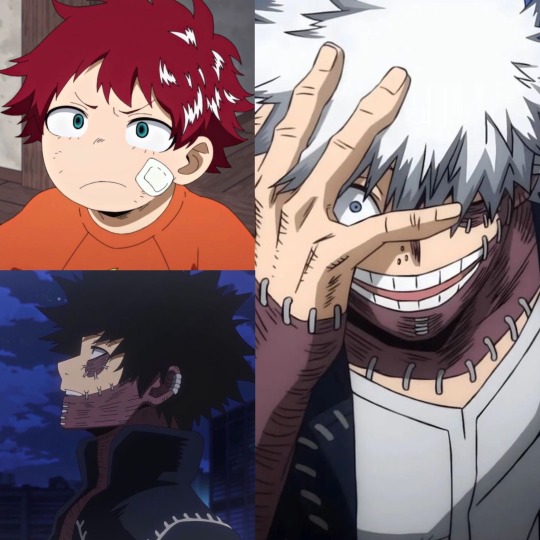

causing their own ends
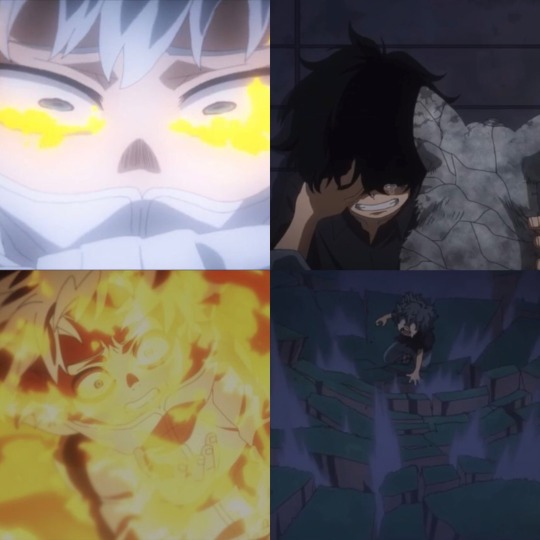
abusive dads

bad childhoods
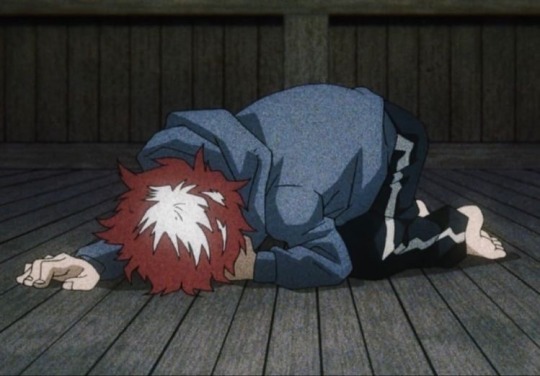

recalling childhood
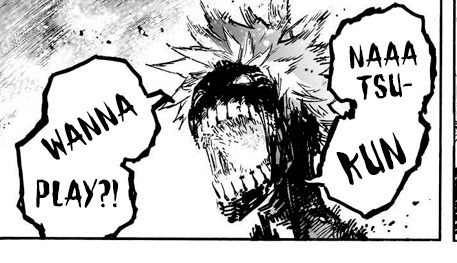

their body is not their own
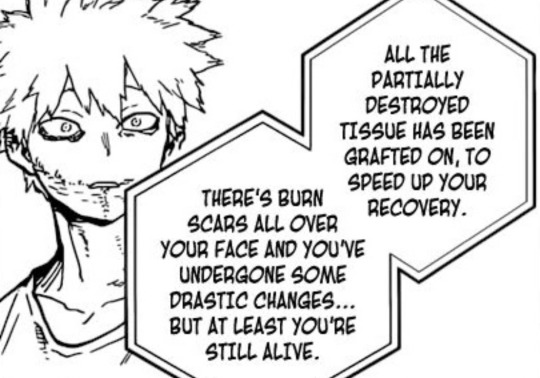
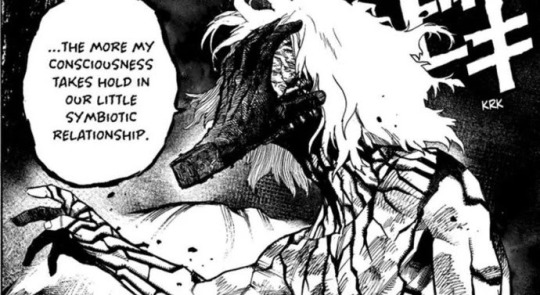
afo finding them
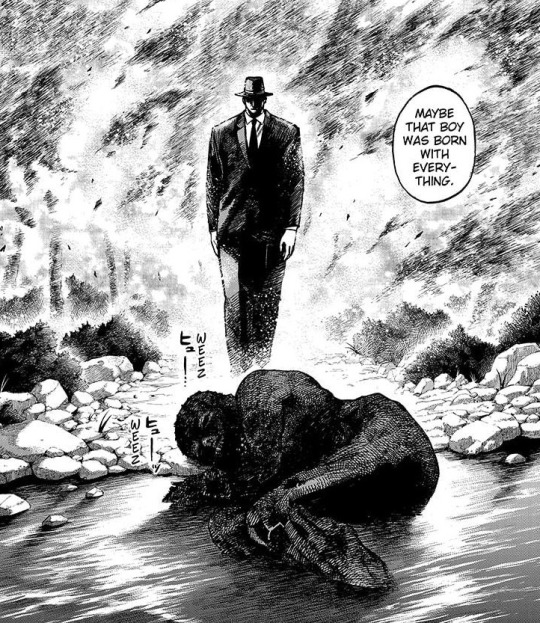

“you can’t be a hero”
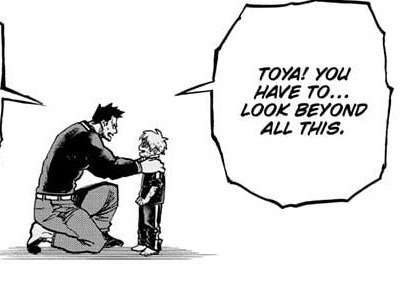
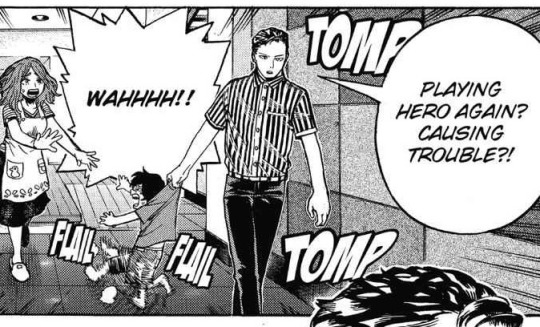
kicking the shit out of endeavor


moms that want to protect them
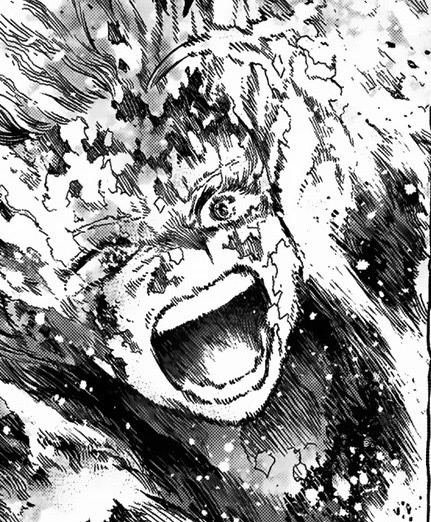
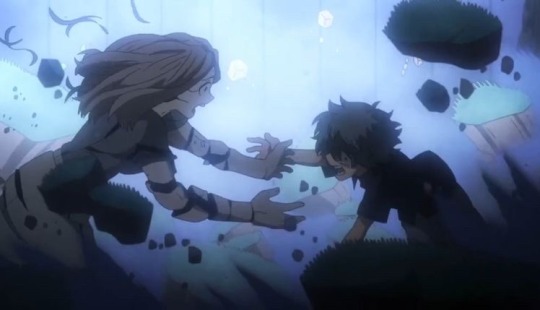
their inner child being reached
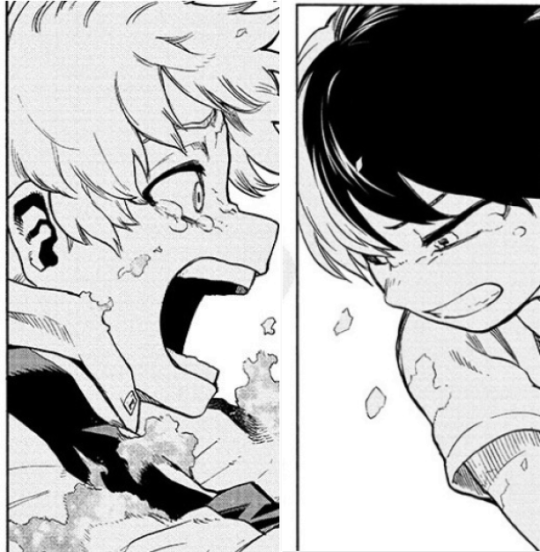
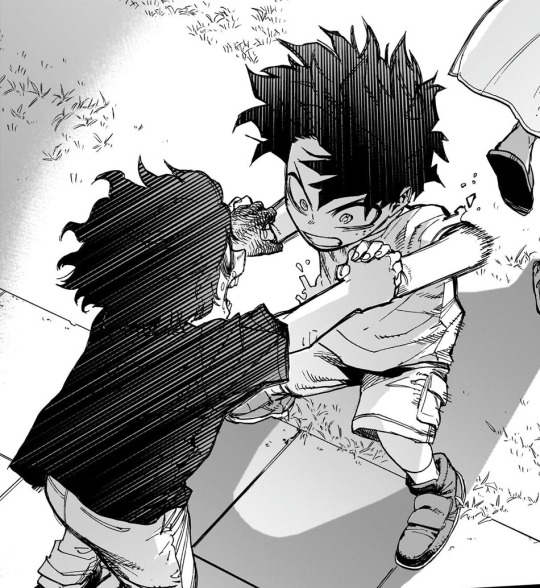
#im sure there are many more#these are just the ones i think about 24/7#purposefully leaving out their questionable fates#shiggy please come back#mha#bnha#my hero academia#boku no hero academia#dabi#shigaraki tomura#todoroki touya#touya todoroki#tomura shigaraki#mha manga spoilers#bnha manga spoilers#shigadabi
1K notes
·
View notes
Text
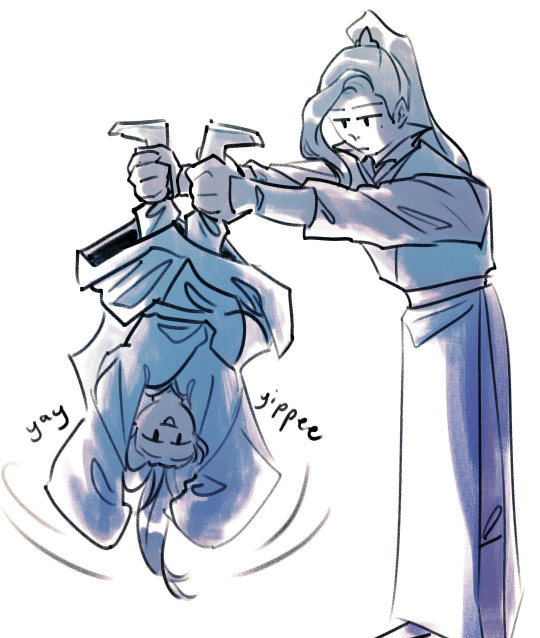
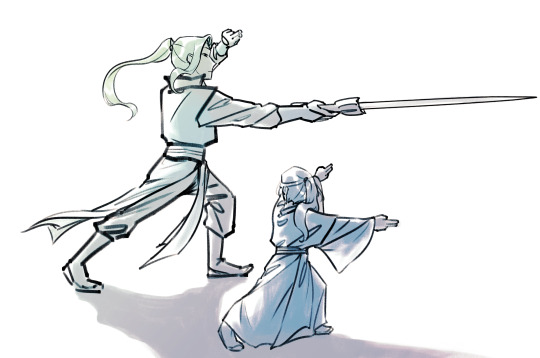
despite his initial rough impression, lqg gets a "fun" rating on the gege scale
#arts#mottau#dragging lqg into the autism to autism communication array#sy thinks he is so cool actually. but he will fiercely deny it if you say so#lmao stupid little baby crush#he has! a cool sword! and hes fought so many monsters! and hes called the Bai Zhan WAR GOD#and also is more lax than his other geges in letting him do stuff that toes the line of things he shouldnt be allowed to do yet#such as you know imitating sword forms when he's not supposed to touch cultivation or combat for another year#in lqg's mind theres no reason he cant practice the forms. and also he doesnt even have a practice sword let alone a real one#he will get yelled at later#can you tell that i read dun meshi and it irreversibly changed the way i draw silly little autistic smiles. bc i sure fucking can#anyways releasing this from containment since im almost done the next chapter. incentive (for myself)
406 notes
·
View notes
Text
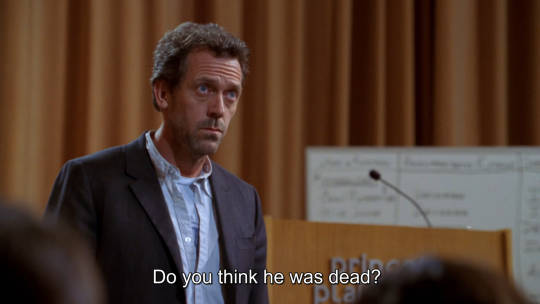
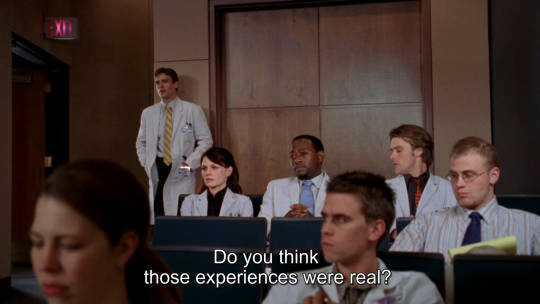
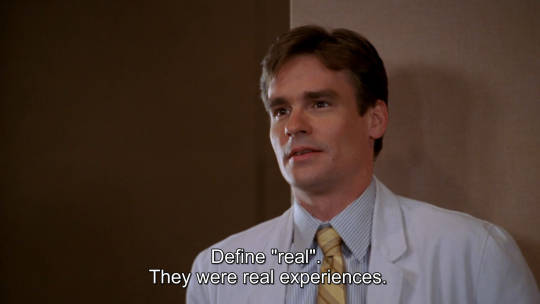

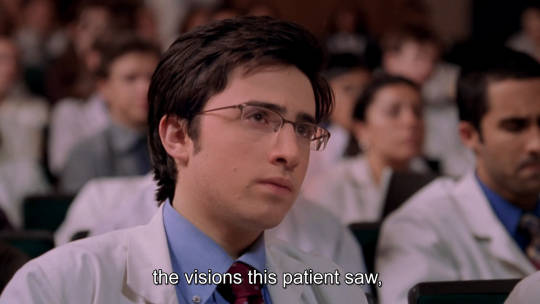

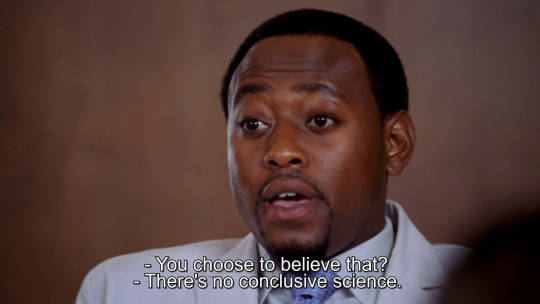
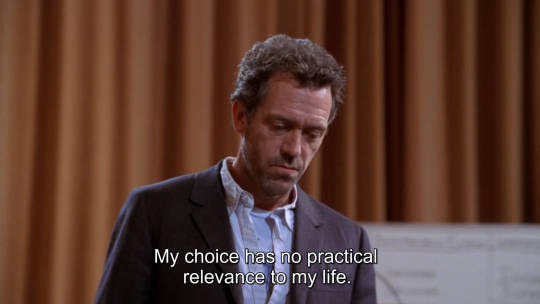



#house md#gregory house#james wilson#eric foreman#alison cameron#screencap#s01e21 “Three Stories”#long post#longpost#great line great scene great episode#if im feeling normal abt three stories its not me#wilson curious abt “white light” again#mb part of the reason hes hangs w house#bro is always so close with death#and i think there is more science on it by now not sure how conclusive tho#btw house never waivers on his atheism no matter how many times show tries to shake that#its interesting#that the show keeps trying to challenge him i mean#very american
472 notes
·
View notes
Text
i love the bit from oct 17 2020 when tommy and quackity trapped wilbur in a cobblestone box to keep him from pressing the button... wilbur punching through the blocks with his bare hand to try to get to the button... tommy frantically replacing the block in front of him yelling for quackity to do something... the moment when tommy stops, blocks the exit, and tells wilbur to do it. press the button. but then theyd die with him. quackitys like "wait, wait-" but tommy holds his ground and wilbur. ohh wilbur. "why'd you have to make it so hard?"
#my post#this is just me rambling sorry i love that stream ive watched it sososossoooo many times from all 3 povs#AND AFTER TOMMY AND QUACKITY LEAVE....#wilbur replaces the button. i just need to know that its there.#and he goes on and on about how hes such a showman. how he shouldve just pressed it when he was alone.#but he just NEEDED someone to see him he needed someone to bear witness. guh#shaking. shaking. shaking. tommy put so much trust in him in that moment. he looked at him and said i know you want to hurt yourself but yo#wouldnt hurt me. and is he right to believe that? is he? maybe back in lmanberg maybe back during 'your life is worth more than the#revolution' but in pogtopia?? during 'wilbur wanted to be treated poorly so he treated others poorly'? it was a gamble for sure#and i mean as time went on tommy realized that. that as much as he cared about wilbur he couldnt trust him all the way.#but either way. in that moment i think tommy was sure that wilbur wouldnt press it if he realized that tommyd be killed as well.#that even though at this point people were saying wilbur was crazy. that hed lost it. that even if he didnt get it he knew something was#different about wilbur now. in that moment he bet everything on if there was anything of his brother left he wouldnt hurt him.#fucking. collapses onto the floor#disclaimer if anyone actually reads this far im not trying to slander pogbur in 2024 by calling him crazy thats just how like. every single#other character saw him.#anyways thanks for coming to my ted talk
309 notes
·
View notes
Text
bitches will see the most pathetic, sopping wet drowned kitten of a man in a horror movie and be like i want that one (i'm bitches)
#fnaf#five nights at freddy's#mike schmidt#josh hutcherson#fnaf movie#horror#upl#this is specifically abt mike schmidt but im sure theres many more
998 notes
·
View notes